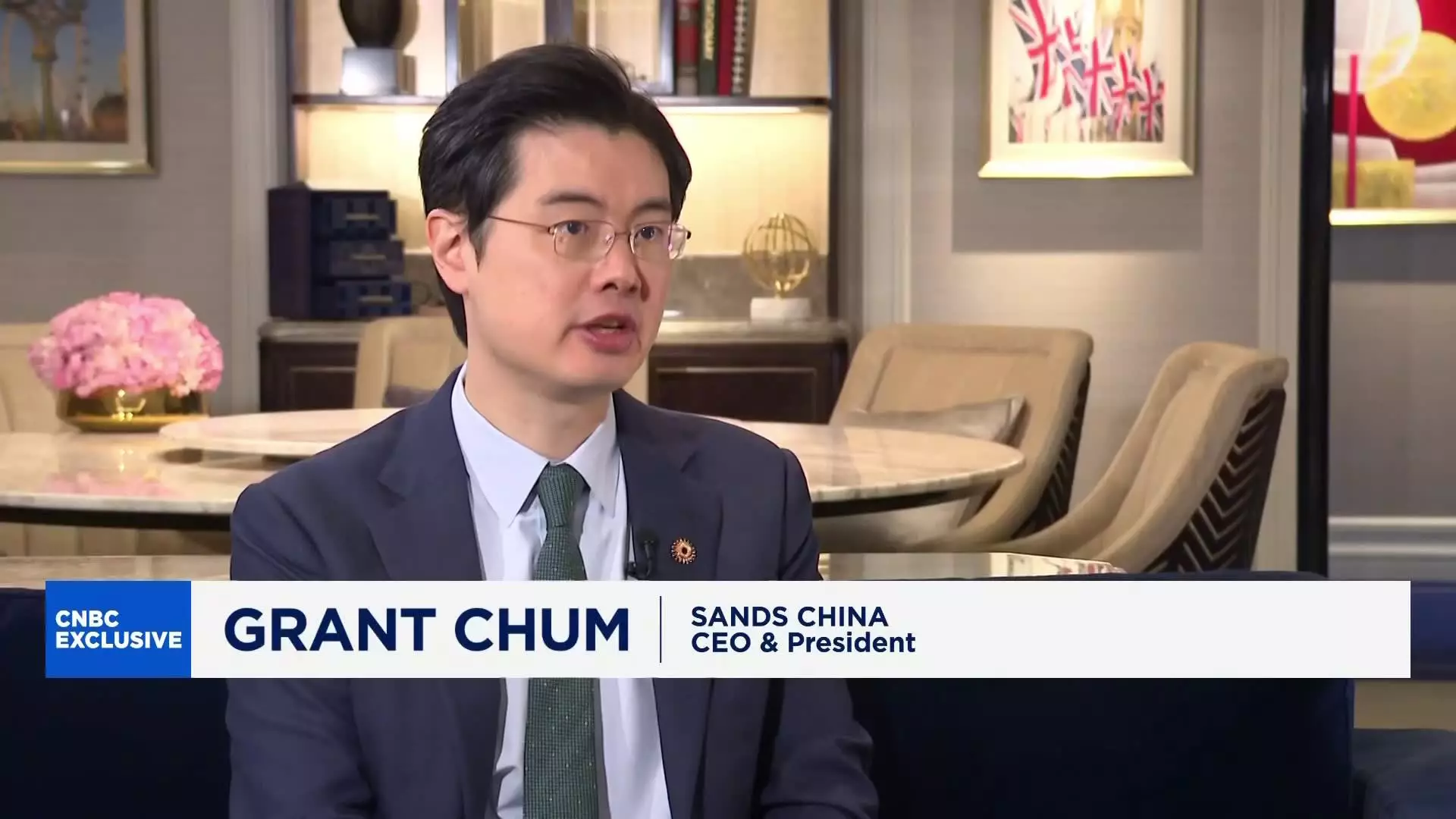As the dust settles on the recent visit of Chinese President Xi Jinping to Macao, it becomes increasingly evident that the region is undergoing a significant economic transformation. With an ongoing shift from a gambling-centric economy to a diversified platform for sports and entertainment, the statements made by Grant Chum, CEO and President of Sands China, emphasize ambitious goals and robust strategies aimed at molding Macao into an international destination for sporting events and entertainment experiences.
China’s approach to Macao has evolved in recent years, particularly in light of concerns over its heavy dependence on gaming revenues. During Xi Jinping’s visit, Chum highlighted a new trajectory for Macao: moving beyond being a mere gambling hub to becoming what he described as “a city of sports and entertainment.” This declaration is more than just rhetoric; it’s underscored by tangible partnerships, notably the engagement between Sands China and the National Basketball Association (NBA) to host pre-season games in Macao starting in 2025. This collaboration signals a serious commitment to infusing fresh streams of entertainment into the local economy.
The intention is clear: by developing a multi-year partnership with the NBA, Sands China seeks to create a sustainable sports culture within Macao while boosting its brand and economic stability. This is particularly necessary as the gaming operators collaborate to invest nearly $15 billion in non-gaming projects, which speaks to a collective acknowledgment of the need for economic diversification.
Sands China plans to inject $4.5 billion into Macao by 2032, citing that over 90% of this investment will be allocated to non-gaming ventures. Such optimistic forecasts place Macao on the international map not only as a gaming paradise but also as a dynamic entertainment hub. This multifaceted investment strategy indicates a broader vision for urban renewal and economic restructuring.
Xi Jinping’s encouragement for Macao to “keep pace with the trends of the times” and demonstrate “greater courage in reform and innovation” adds weight to this transformative vision. As local operators navigate these waters, the task ahead is both daunting and essential—the spectra of change requires not just investment but the cultivation of a new cultural identity that can attract diverse talent and global attention.
Central to this ambition is the significant renovation of the Venetian Arena, which has undergone extensive upgrades totaling over $200 million. This venue, which will stage the upcoming NBA games, is poised to become a centerpiece for large-scale events, fostering a vibrant entertainment ecosystem in Macao. By offering new state-of-the-art facilities, Sands China aims to attract major concerts, sporting events, and exhibitions, further transforming the city into a recognized center for entertainment.
The strategic positioning of such infrastructure serves a dual purpose: it not only meets the immediate needs for hosting large gatherings but also enhances Macao’s appeal as a long-term tourist destination. The potential for the arena to facilitate prominent global events is pivotal in elevating Macao’s international profile.
Yet, as Macao has celebrated the 25th anniversary of its handover to China, it also faces the sobering reality of its slow transition from predominantly gaming-focused businesses. Although gaming revenue has rebounded to about 80% of pre-pandemic levels, there is still a collective sense of urgency in cultivating a more resilient economy. Both local leadership and business operators are urged to step up reforms that will enable faster adaptation to emerging market trends.
Chum’s insights into the necessity of enhancing Macao’s brand equity through ventures like the NBA games reveal a deep understanding of market dynamics. The aspirations are high, but the pathway forward will mandate innovation, strategic partnerships, and relentless dedication to diversifying the economy.
Macao is undoubtedly on a transformative path—a journey to redefine itself as a premier destination for sports and entertainment rather than merely a gaming epicenter. The reliance on sporting events, backed by ambitious investments, could potentially reshape its financial landscape and cultural identity. As the city navigates this challenging yet exciting transition, the attention of the world will be trained closely on its reinvention, beckoning a new era for Macao.


Leave a Reply